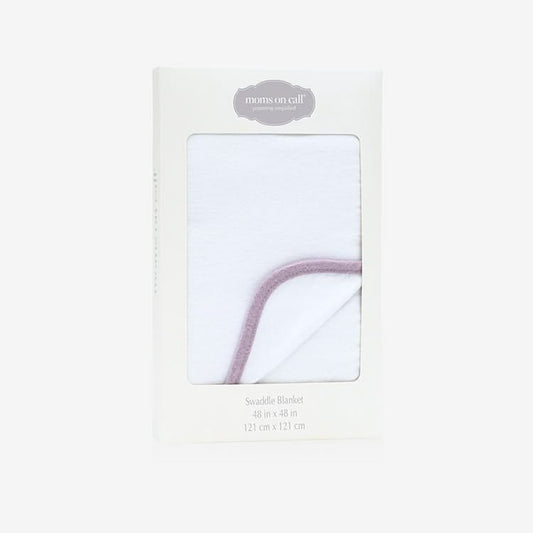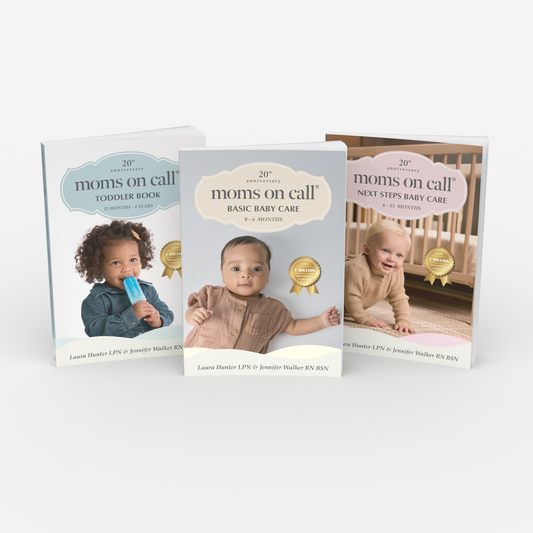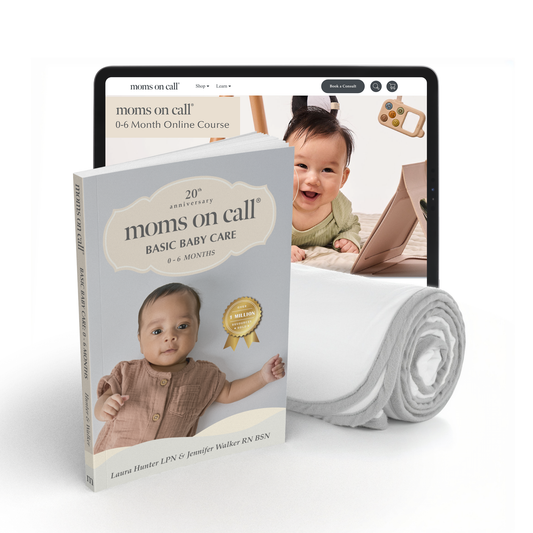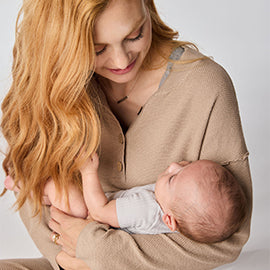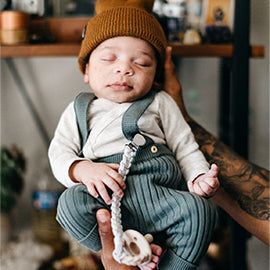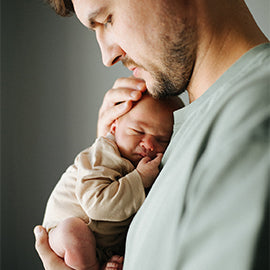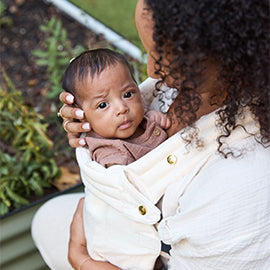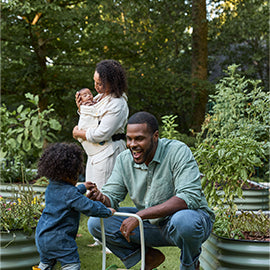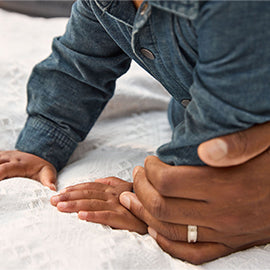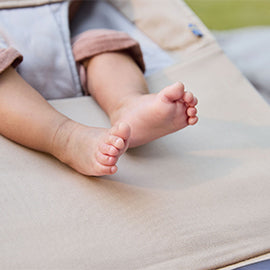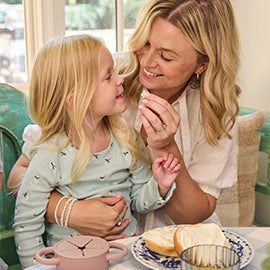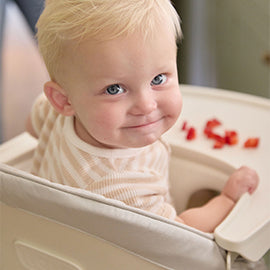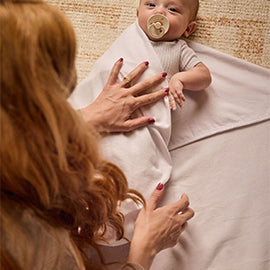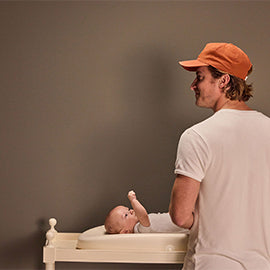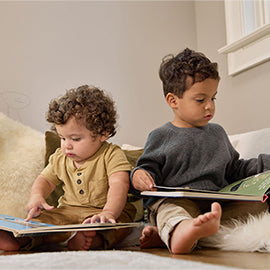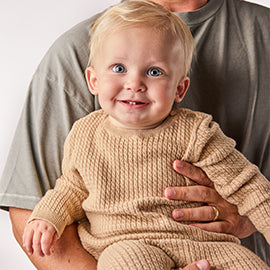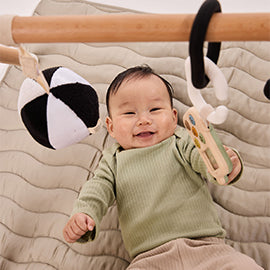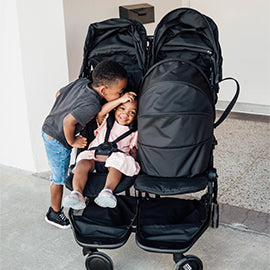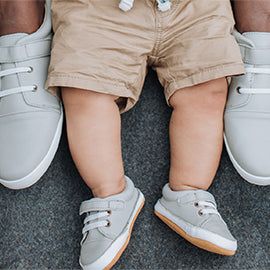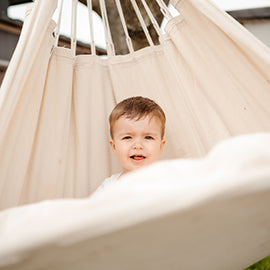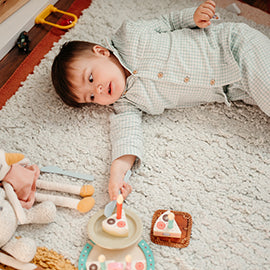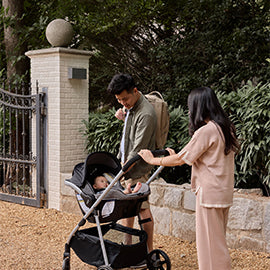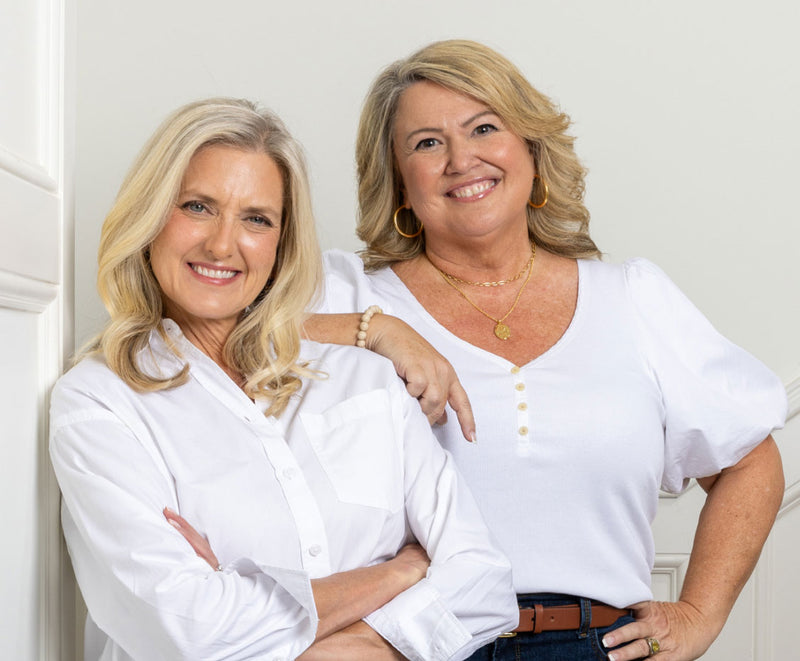We’re so excited to share with you the latest episode of our Moms on Call parenting podcast, all about babies and toddlers! Today we are talking about getting your toddler to drink water and what to if your toddler is teaching the younger sibling off-limit words.
Laura Hunter/Jennifer Walker: Parents, does this sound familiar? Water. Water is everywhere, yet they won't take a drink. What do you do when your toddler won't drink plain water? No matter how hard you try! As adults, we must drink at least six to eight glasses of water daily. But what about our kids?
Welcome to the Moms on Call podcast. We're so glad you're here!
Intro: Whoever said babies and toddlers have no instruction manual? Never met the Moms on call. For nearly 20 years, Jennifer Walker and Laura Hunter have helped over half a million families navigate Parenthood with their best-selling books, online courses, apps, and network of certified consultants. And now they have this podcast to talk directly with you.
Getting your toddler to drink water.
Caller 1: My name is Michelle, and I live in Baltimore. I'm calling about my two-and-a-half-year-old son. Getting him to drink water right now is really hard for us. When he turned one and transitioned from formula to regular milk, it was hard for him, and we found that he just didn't like milk. We tried a lot of different kinds of cups, and it's just not his thing. When we asked our pediatrician, they told us that orange juice was a good substitute because it also has a bunch of vitamin D. So we tried getting him to drink orange juice for the time being while also giving him water and some apple juice. Fast forward to now, and we're having a hard time getting him to drink just the water. He loves his apple juice, which we do about 50% water and 50% apple juice. Any tips on how to get him to drink more water would be awesome.
Orange juice over water any day!
Laura Hunter/Jennifer Walker: Laura and I have always said this, and we always get asked this question! When kids are younger, should I introduce vegetables before I introduce fruits?
Laura Hunter/Jennifer Walker: Apple juice and orange juice will always taste better than water, which has no taste, right? So it's like, what's the purpose in his mind? It doesn't taste like anything. So I get where that comes from. However, we can get some water and fluids in other ways by adding extra water to our smoothies. We have tons of smoothie recipes in the Moms on Call Online Courses. We also have a Solid Food Introduction Calendar that is very helpful as well!
Use sippy cups with a straw.
Laura Hunter/Jennifer Walker: If you haven't tried a straw sippy cup, I would absolutely grab a straw cup. Those are great to put smoothies in that are a little bit thicker. But really, when it boils down to it, offering it, keeping it around, letting him see it. You drink your water and get some of the smaller little water bottles that you can have available. Let him see you drinking your water. Grab some of those straw sippy cups and add a little more water to those smoothies, and he will get what he needs. He really will. Try not to get hung up on the amounts as much as having the water available. Let him watch you do that and then try and get some fluids in wherever you can.
He is going to learn how to love it. He's so capable. It's happening.
Laura Hunter/Jennifer Walker: And here's what I love. So when I do a toddler consult, Mom and Dad are afraid their toddler is not getting enough nutrition. Is he drinking enough water? And I will look across the room and see this two-year-old drooling all over everything, and I'm like, yeah, the fluid's pouring out of his mouth right now. That's a great sign. So at this stage of the game, if they're drooling, like we're doing good.
Laura Hunter/Jennifer Walker: They don't just hold out forever; you'll be worried that he's dehydrated. But just use those signals. If there's moisture inside his bottom lip, urinating at least every other feeding, and he is active, alert, and playful during the day, then we can make that transition without the orange juice and apple juice. Now, of course, what's going to happen when we decide to do this? We're like, no, we're just going to go straight water. He is going to learn how to love it. He's so capable. It's happening.
Teaching the younger sibling off-limit words.
Caller 2: Hey guys, I love your show. This is Michelle calling from Mississippi. I have two daughters, and they are two and five. My two-year-old is still picking up words and expanding her vocabulary. My five-year-old literally never stops talking. The problem is that my two-year-old often copies the things that my oldest says, which are the good and the bad. My oldest knows that we don't allow words like stupid or saying hate, but sometimes she likes to test us. So when my two-year-old hears the words, she copies them, and it causes my oldest to laugh. So, of course, it perpetuates his behavior, and it's hard to tell the two-year-old that we aren't allowed to say certain words. She just doesn't understand that. Do you have any tips on how to address laughing at the bad behavior with my oldest and how to discourage my youngest from using the words as she continues to build her vocabulary? I really appreciate your help.
Laura Hunter/Jennifer Walker: Michelle. First off, hey, welcome to the club. We have all been there, and everybody with a two-year-old and a five-year-old or two kids or three kids or four kids has been exactly where you are. So welcome.
Laura Hunter/Jennifer Walker: You have an instigator!
What can we do?
Laura Hunter/Jennifer Walker: We do have some teaching opportunities here, but we just want to set realistic expectations. These things are going to be funny for a while. If you also laugh, not going to help. So you turn away, even though sometimes it is kind of funny. Don't let them see you laughing at it. It's going to make it worse. Try and hold that in. And we want to be able to say mostly with the five-year-old because the two-year-old's just going to be mimicking behaviors that make somebody laugh. That's where they are developmentally.
Laura Hunter/Jennifer Walker: So mostly with the five-year-old Nick, I know that you'd like to get those no-no words out sometimes, but that's not how we speak here at our house. We just speak kind words. Can you tell me some kind words? I would love it if you would help your brother speak kindly. I would love it if you'd help your sister speak kind words and how much influence you have. This is really important. So let's work on it together and see if we can get him to say some of the kind words. What are your favorite words? And let's say those. So it puts them on your side. You're doing something together. It takes the focus off of the words we don't necessarily want to hear in public or when we're going to preschool for the first time and helps them establish that they really are an influence. They're enjoying that, and so they can enjoy it in a different way.
Take control of the atmosphere of this house and have a great time with it.
Laura Hunter/Jennifer Walker: I love that because we can also bring them in to show action words. You can say, okay, let's use the word jump and watch how your little sister's face lights up. As you say, jump, jump, jump. And you're jumping while you say that word because that does help the two-year-old to start to connect what words mean. And so just have a few of those and take that in, set some time apart where you can really speak that into that five-year-old and watch how things change in your house.
Laura Hunter/Jennifer Walker: Take control. Take control of the atmosphere of this house and have a great time with it. This is not a tragedy. It is very normal. And we're going to turn the tables on 'em and use it for good.
We’ve heard it too many times: “Babies don’t come with an instruction manual.” So instead of taking the old cliché at its word, we asked, “Why not?”. Visit our website for all that Moms on Call has to offer.
